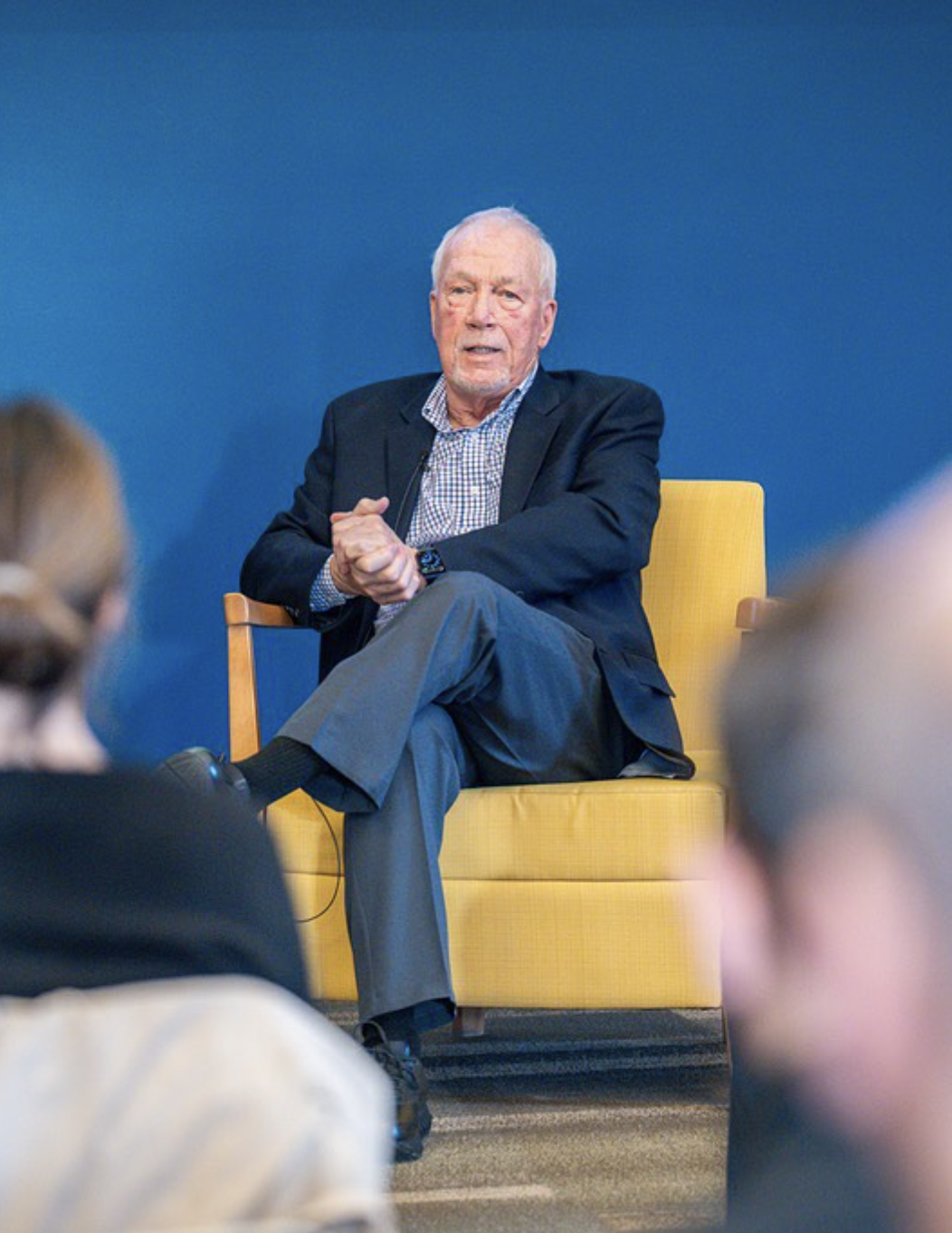“We’re now a nation where people seek the affirmation they want, rather than the facts they need,” Walter Robinson, a renowned journalist, Pulitzer Prize winner and editor-at-large for The Boston Globe, said to the crowd at the Robert J. Higgins Welcome Center.
Robinson delivered a lecture on April 8 in partnership with the Taricani Lecture Series, presented by the University of Rhode Island Harrington School of Communication and Media.
Robinson centered his speech around investigative journalism and its uncertain state, at a time when the president of the United States has deemed journalists “the enemy of the people” and barred certain news organizations, such as The Associated Press, from covering the White House.
Robinson’s most prominent work came from his time leading the Boston Globe’s ‘Spotlight’ team where he investigated the Catholic Church and its ties to numerous sex crimes from 2002 to 2006, as depicted in the 2015 film “Spotlight.”
“These unspeakable crimes in Boston had taken place pretty much everywhere else,” Robinson said. “What we did not know was that it was the dawn of the internet age, which meant that, to our surprise, our stories went viral.”
Within a day or so of the stories’ release, The Boston Globe received emails and phone calls from victims across the United States and around the world, according to Robinson.
Throughout the lecture, the main theme was the state of journalism and his insights on the matter. Robinson’s central point was that a free press equated to a free people and that it served as the backbone of democracy.
“A free press is the unsleeping guardian of every other right,” Robinson said.
Robinson spoke at length about public trust and how some feel journalists are not serving their best interests. However, he expressed that hope for journalism is not lost and that the public still holds it in some regard.
Before President Donald Trump’s election in 2016, The New York Times had around 1.7 million digital subscribers, according to Robinson. Now it has 10 million.
He referred to this phenomenon as the “Trump Bump.”
Robinson said that the best way to regain and maintain public trust begins at the local level. He asserted that good and honest local reporting was the solution.
Robinson referenced that local nonprofit news outlets like The New Bedford Light and The Plymouth Independent are experiencing growth in their number of reporters and editors.
In addition to his leadership of the Spotlight team, he also mentioned his investigation into Jewish artwork that had been misplaced after World War II, where he later learned that most of those paintings belonged to Jewish people who had died in concentration camps.
When asked how Robinson had the courage to put out his story about the Catholic Church without fearing he’d have a target on his back for it, Robinson said the story came out before the age of social media, so he didn’t receive much pushback. If the story had been released now, he said it would’ve been different.
Additionally, Robinson said more conservative catholics weren’t giving him a hard time and perceived it positively.
Robinson had been in talks for several months with Dan Hunt, URI’s journalism and public relations department chair, to be part of the Harrington School of Communications and Media’s Taracani Lecture Series.
The planning for Robinson’s visit started last summer, according to Hunt. Robinson was very receptive to his request for the visit and Hunt felt as though there would be a local connection to Robinson because of his depiction in the 2015 film “Spotlight” and for Robinson’s works for the Boston Globe.
“We made it a visiting journalist series,” Hunt said. “Where the journalists will actually get to spend some time in the classroom with students.”
URI Alumni Laurie White ’81 made a donation of $350,000 toward the advancement of the Taracani Lecture Series fund. This will allow the Harrington School of Communication and Media to continue its traveling journalist initiative and continue to provide informative lectures for students.





